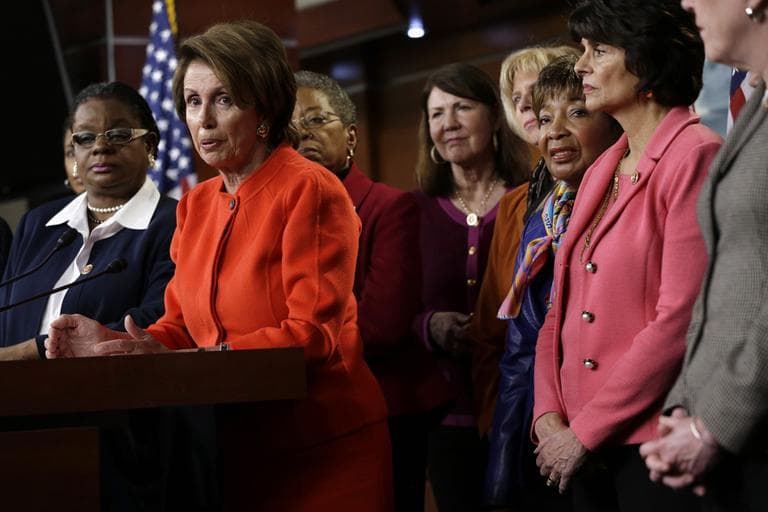Advertisement
Senate Heads Toward Vote On Anti-Violence Act
Resume
The Senate is heading toward a strong vote on broadening the reach of the Violence Against Women Act, putting pressure on the GOP-led House to come up with its own version that would be acceptable both to Senate Democrats and to female voters who abandoned Republicans in the November election.
The Senate bill, likely to pass Tuesday by a wide margin, would renew the 1994 act, which expired in 2011, and ensure that services provided under the act would be available to gays and lesbians, immigrants and Native American women. It tackles the high rate of domestic violence on tribal lands by giving tribal courts powers to prosecute non-Indians who assault Indian women on reservations.
The Senate passed a very similar bill last year but the House, which passed its own bill, wouldn't go along with the more expansive Senate version and the bill died.
The Violence Against Women Act is regarded as a milestone in the legislative effort to reduce domestic abuse, with supporters linking the act to a 64 percent reduction in domestic violence between 1994 and 2010. The act provides grants to state and local authorities for legal assistance, transitional housing, law enforcement training, stalker databases and domestic violence hotlines.
Advocates say they hope the GOP's determination to improve its image among women will make it easier for the House and Senate to find common ground this year. House Majority Leader Eric Cantor, R-Va., has taken the lead in crafting a House bill and has pledged to move quickly. He says he is in contact with Vice President Joe Biden, who played a major role in passing the original 1994 act.
Before moving to a final vote, the Senate on Monday rejected an amendment offered by Sen. Tom Coburn, R-Okla., which would have stripped out the most controversial part of the bill - the provision giving Indian courts additional powers. The vote against the amendment was 59-31.
"What we've done with this solution is to trample on the Bill of Rights of every American who's not a Native American," Coburn said, predicting the courts would strike down the provision as unconstitutional.
Supporters of the bill say a 1978 Supreme Court decision that denies Indian tribes the power to try non-Indian citizens makes an exception for proceedings that are acceptable to Congress. The National Task Force to End Sexual and Domestic Violence Against Women says the provision is tailored to make sure that all rights guaranteed under the Constitution are given to non-Native defendants.
Sen. Maria Cantwell, D-Wash., who chairs the Indian Affairs Committee, said Indian women are raped and assaulted at 2{ times the national rate, and less than 50 percent of domestic violence cases on reservations, often far from federal courts, are prosecuted. "This is about the life and death of women who need a better system to help prosecute those who are committing serious crimes against them."
Two House Republicans - Reps. Tom Cole of Oklahoma, who is of Native American heritage, and Darrell Issa of California - have been pushing a compromise that would give defendants the right to request that their trial be moved to a federal court if they felt they were not getting a fair trial.
Coburn faces another uphill fight in winning support for an amendment that would require the Justice and Health and Human Services departments to consolidate duplicative programs and come up with at least $600 million to support reducing a backlog in so-called rape kits.
The legislation already has a provision, backed by a bipartisan group headed by Sen. John Cornyn, R-Texas, that would speed up the analysis of DNA evidence in rape cases. There's now a rape kit backlog estimated at 400,000, with evidence that could link an assailant to a sexual crime sitting on police office shelves for months or years.
The legislation would authorize some $659 million over five years for VAWA programs, down 17 percent from the last reauthorization in 2005.
Guest:
- James Hohmann, national political reporter for Politico. He tweets @jameshohmann.
This segment aired on February 12, 2013.